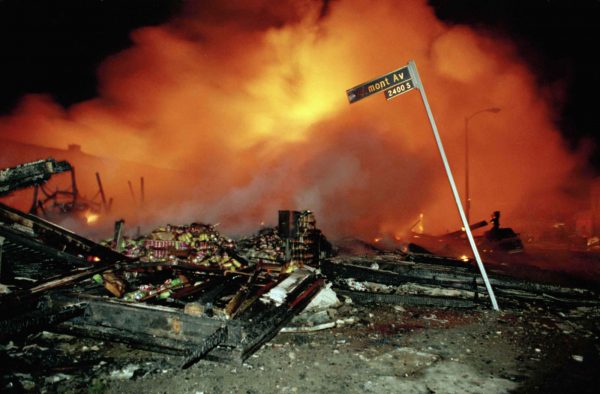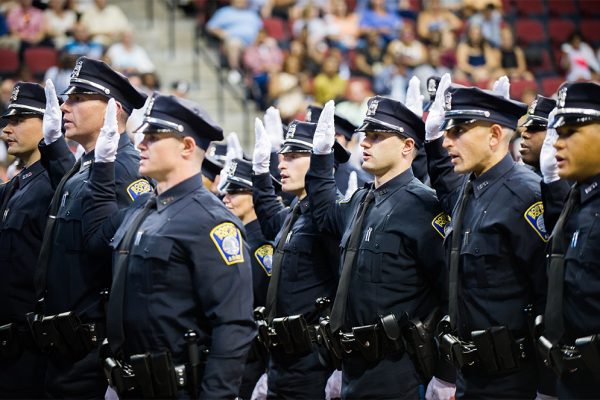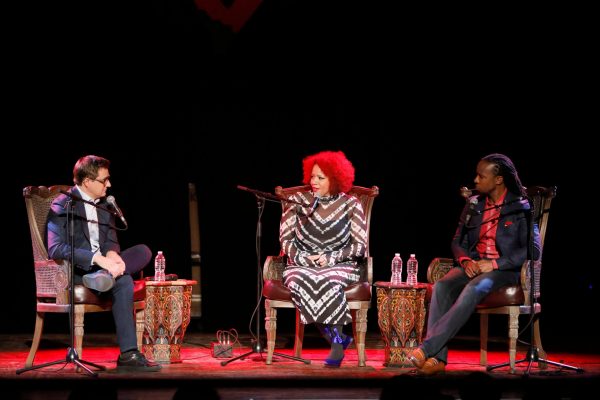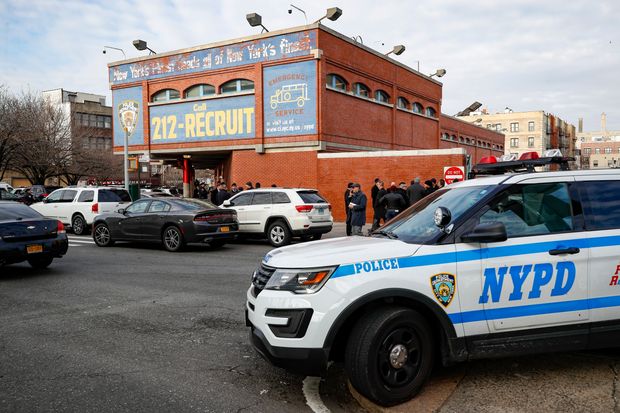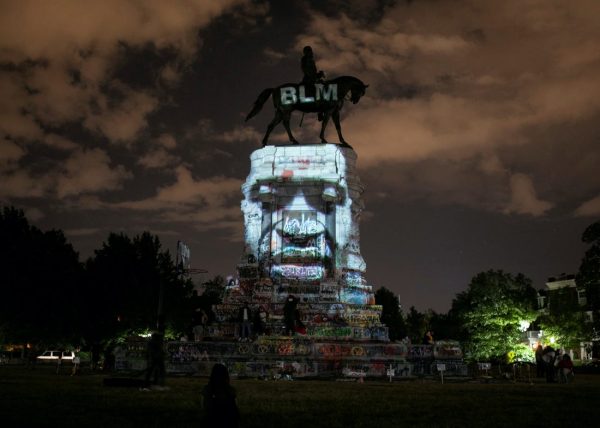The deal with the devil is made. Kamala Harris is determined to see it through.
The Woke Mob Plays God
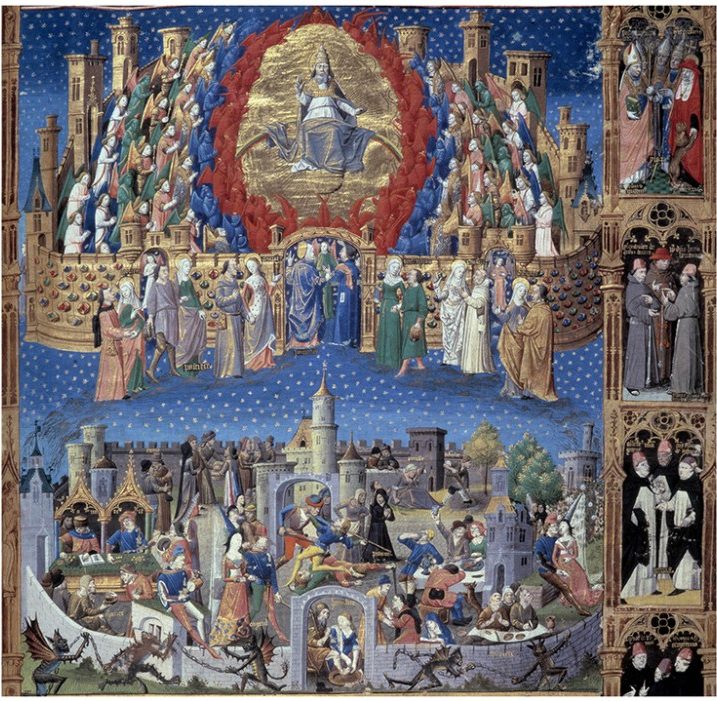
Christians should reject this heretical cult.
America now faces a crisis that extends far beyond partisan politics. This is a religious struggle. Citizens of good will who want to understand, never mind counter, our current cultural revolution need to start viewing the “woke movement” as a religion. Not just any religion: what is now playing out in our board rooms and city streets alike is a twisted version of Christianity. It laundered its moral authority from Christianity. Christians must reject it utterly.
Sociopathic Revolution
A dear grandmother I have known closely for decades recently told me that in response to the chaos of 2020 she is examining herself to discern how she might be a racist. She is nothing of the sort. But crippling normal citizens with moral self-doubt is a classic way to disempower and demoralize those in the grip of a sociopathic revolution. This revolution is being led by ideologues who continually scold America for causing a societal breakdown which in fact they themselves have orchestrated.
Sociopathy is subtle and manipulative. The real tell-tale sign of a sociopath, according to American psychologist Martha Stout, is that his energies are directed not at our fear, but rather at our pity. It is only when the appeal to our sympathy fails that he pivots to a manipulation by fear. Woke ideology, having preyed for years on our pity, is now pivoting to our fear.
Since the destructive mayhem began in the streets in late May, there has been a dogged effort to redirect our attention away from it. Such efforts seem more detached from reality every day as the true nature of the riots and unrest grows harder to ignore. Forced to acknowledge them, Democrats are twisting themselves into knots to place blame with anyone except the Mostly Peaceful Protestors™ who have destroyed countless businesses, abused bystanders in the streets, cheered the murder of a Trump supporter, and called for the murder of police officers.
Even the blatantly opportunistic crime of looting has been given a makeover: “Looting strikes at the heart of property, of whiteness and of the police,” said one author in her fawning interview with NPR. “It provides people with an imaginative sense of freedom and pleasure and helps them imagine a world that could be.”
Perpetrators in the streets, it seems, are impervious to blame. How is this possible?
Woke Victimhood
In my upcoming book, Awake, Not Woke (TAN Books, spring 2021), I explore how this confounding reality, among others, can be explained by understanding that Woke ideology is a counterfeit of Christianity. In place of Christ, who is true God and perfect victim, the Woke claim perfect victimhood as their own, so that they might be as gods.
This pattern of thinking sheds light on why so many are brazenly in denial of the moral agency of these perpetrators and the culpability of the movement which animates them.
Blame cannot be ascribed to those deserving of it because we have collectively bent the knee to an ideology which holds as blameless the people it seeks to empower. The violence and chaos in the streets are not incidental to the movement: they are essential to it. They represent the playing out of the internal logic (such as it is) of its leaders’ revolutionary philosophy. The blameless deserve to exercise power as they please.
Consider: somehow the blame gets pinned instead on Trump, or the system, or property, whiteness, and police. The brazenness of this deflection, when the vanguard has been explicit for decades about its aims and tactics, is likely attributable to either negligent ignorance or willful deceit.
The Scapegoat
Why are so many people of good will swallowing the narrative? In part, because we have been intimidated into stupid compassion—the sort of “compassion” that leads a mother to upbraid a teacher for giving her teenage son detention.
There is a deeper reason, however. There is a reason why the words “woke” and “mob” go together easily and often. A mob is the natural habitat for the Woke. The ruling characteristics of the ideology mirror the ruling characteristics of the mob. Both are impersonal, impervious to reason, and reject authority for the sake of power.
French philosopher René Girard illuminates the psychology behind mobs and scapegoating by reference to mimēsis, the imitative feature—and folly—of our human nature. We innately mimic each other not just in our actions or our appearances but in our desires. We want what we see others wanting. We also dislike what others dislike.
According to Girard, this inclines humans toward conflict and violence. We start to see one another as rivals and competitors. When conflicts arise, we are prone to align ourselves with the side we perceive as stronger. Faced with the threat of violence, the crowd tends to gather against the same opponent in search of a scapegoat upon whom to project their guilt and direct their need for blame and violence. According to Girard, both anger and guilt can be projected on the scapegoat in what he calls the “scapegoating mechanism.”
When we join with others against a common enemy, we experience a sense of solidarity within the group. Gossip is a microcosm of this tendency. We feel a sensation of bonding with the person with whom we gossip at the expense of the person who is targeted. On a broader scale, we see scapegoating made manifest in racism, or political partisanship, or mass genocide.
In the killing of the scapegoat, the crowd achieves a cathartic sense of peace. But this peace is always fleeting, because it is built on irrational violence that leaves one with the feeling that he too might become the next scapegoat. To quiet our guilt and fear, we seek another scapegoat and the cycle of violence continues.
Paradise Interrupted
This ancient and deeply human phenomenon is why mythology and religions are characterized by scapegoats and ritualistic sacrifices meant to appease the gods. The victim carries a dual significance—it bears guilt, but it can also be sacralized because of the sense of solidarity it creates in the scapegoaters.
Christ turns all of this on its head by becoming the perfectly innocent victim. His innocence is not denied but known and affirmed, to the point that his disciples give their lives in defense of it. God identifies with the scapegoat, not the scapegoaters. He is perfect innocence, and perfect victim. Because of this, he unmasks and exposes the guilt of the mob and frees us from the cycle of sacred violence. Guilt cannot be projected onto him and so by his death he prompts us to contend with our own guilt.
In their counterfeit perversion of Christianity, the Woke elevate and glorify not the one true victim, by whose blood we are made innocent, but the gods of the Woke mob by whose victimhood we are made guilty. But no matter how powerful they become, the one thing they cannot grasp for themselves is Christ’s innocence.
To maintain their victimhood status, the Woke have to appear blameless. Real innocence, when it comes to light, makes a mockery of this claim. That explains the bizarre way in which the Woke movement wants to consume and destroy innocence all the while claiming it for themselves.
We see this clearly in the current effort to strip children of their innocence. Examples are abundant, from drag queen story hours to Cuties. Innocence, in the world of the Woke, is dominance, and consequently children’s spaces must be pervasively sexualized and disrupted.
The second way the Woke claim innocence is through ritual identification and denunciation of oppressors. While a traditional Christian anthropology defines persons in proximity to the goodness of God, the Woke define persons in proximity to the evil of society. Each person is defined into opposition, as oppressor or oppressed or some combination of the two. If the definition of the person is either perpetrator or victim, then moral stature lies squarely on the side of the victim. This simplistic binary creates a need within all who accept it to identify as good by identifying as oppressed.
The City of the King
The narrative of victimhood must be constantly fed. Maintaining victim status requires pointing to a steady stream of culprits. Once this ideology has taken hold in a culture, the victims can get away with all manner of wretched behavior and the useful idiots supporting their movement will find someone else to blame.
Only a return to proclaiming the one, true Divine Victim will end the divinization of victimhood and the mob violence it fuels. We resist this because it is painful to see ourselves as we really are in light of who he really is. In that light we find reason to despair, but we also find reason to hope. It is the despair of a person who finally sees himself as he is. It is the hope of the person who finally sees himself as he could be.
This is a spiritual problem, and it is not accidental. The architects of revolution have long known that the transformation of the West had to come by way of destabilizing the familial and religious pieties of a citizenry and then exploiting the pathologies that result. Convincing people that they are defined by pain and evil is a lot simpler if they know the depths of pain and of evil personally. Woundedness is exacerbated for the sake of making tribal loyalties more militant, and resentment more calcified. The result is a people not only suspicious of the good, but trained to recoil defensively from it—while continually engaged in a futile search for a facsimile of it.
The word devil comes from the Greek word diaballein, which can be translated as “to slander” or “to sow resentment.” At the heart of the Woke movement is not unity but rupture. Rupture from our shared past, from a shared vocabulary, from an ability to reason together, from a canon of western philosophy and literature, and from a shared purpose and identity as human beings.
A stage is set for a collision between an illusory god of self and the one true God. In principle, Woke ideology establishes a modern incarnation of the City of Man, not because it is the wrong politics, but because it allows nothing but the politics of power. It crowds out any vision of the eternal city and instead reduces the world into a decrepit mansion with mirrors and facades and the embers of an old fire. We have to choose and pursue either the machinery of the city of man or the wide landscape of the City of God. One is steel and cement, the other field and forest. The City of Man is chaotic and small. The City of God is expansive and granular.
To begin to rebuild the shining city on a hill that enables a vision of the eternal city, we must preserve the American way of life to the point of defiance if necessary. In 2020 it seems the sudden reality is that our trappings of decadence will be stripped away with war, pandemic, riots, or natural disaster. Something will fill the void left behind—be it a deep religious revival of meaning or something more sinister in the guise of a solution.
The tension between those two options is a battle that is fought not just within societies, but within the heart of each person. To preserve the American way of life against those who would destroy it requires that we defend, pursue, and embody it. We must encourage as many as we can to do the same along the way—not with some sort abstract pity of a divided people defined by evil, but with the uncompromising courage of brothers and sisters who are the children of a King.
Christians above all should call out and refute counterfeit replacements for religion. The longer they remain silent, the more powerful the woke mob will become.
The American Mind presents a range of perspectives. Views are writers’ own and do not necessarily represent those of The Claremont Institute.
The American Mind is a publication of the Claremont Institute, a non-profit 501(c)(3) organization, dedicated to restoring the principles of the American Founding to their rightful, preeminent authority in our national life. Interested in supporting our work? Gifts to the Claremont Institute are tax-deductible.
The Left perfects the mob veto.
It’s time to release the data that can exonerate police.
Their entire rotten network must be exposed.
To save America, we need more police funding, not less.
Bringing peace back to our streets means getting serious about what’s going on.


